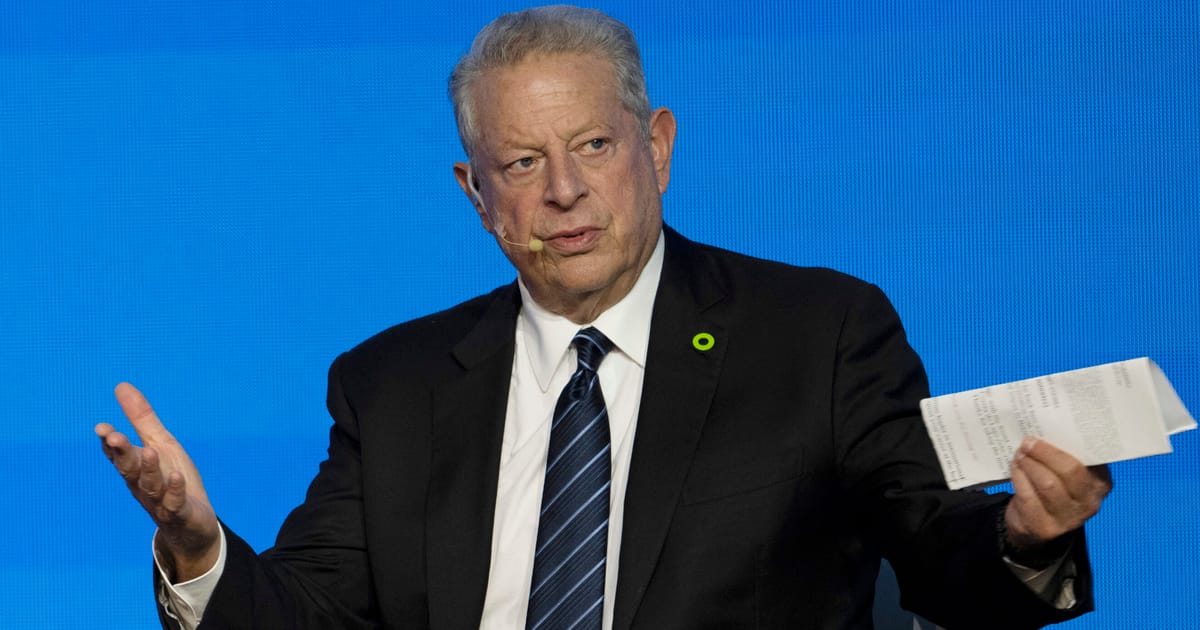U.S. exports of liquefied natural gas to Europe spiked after the full-scale invasion of Ukraine as pipeline supplies from Russia were crimped. The imports helped Europe navigate an energy crisis and, with supply from other countries and the ramping up of green energy, put Europe in a position to detach fully from Russian gas by 2027, according to the European Commission.
In July, Brussels pledged to purchase $750 billion in energy supplies from the U.S. Commission President Ursula von der Leyen said that the effort, part of an EU-U.S. trade deal, would “replace Russian gas and oil with significant purchases of U.S. LNG, oil, and nuclear fuels.”
“I think that Europe, in spite of the extreme difficulties imposed by Russia, has navigated that balance fairly well,” said Gore, who was speaking to POLITICO to announce new Climate TRACE data, a worldwide emissions-tracking initiative he co-founded in 2020 that draws on more than 660 million sources of air pollution.
At a time when Brussels is scaling back many of its green ambitions, Gore believes that Europe’s leadership role remains secure, even as the EU’s commitment to tackling climate change is under scrutiny in the run-up to COP30 this November in Brazil.
“I think that, with all of the controversies and difficulties in getting the member states to agree on the path forward, nevertheless, if you step back and take a broader view, the EU has been a climate hero in the community of nations and regions of the world. I have every confidence that they will continue to play that role,” said Gore.
He noted that Europe as a continent is warming faster than any other, with wildfires raging through Spain, Greece and Portugal.
“For those who are inclined, for whatever reason, to take their instructions from the fossil fuel polluters, they now have to listen to Mother Nature,” he said. “They have to respond to more forceful demands by the people in Europe to take action.”

